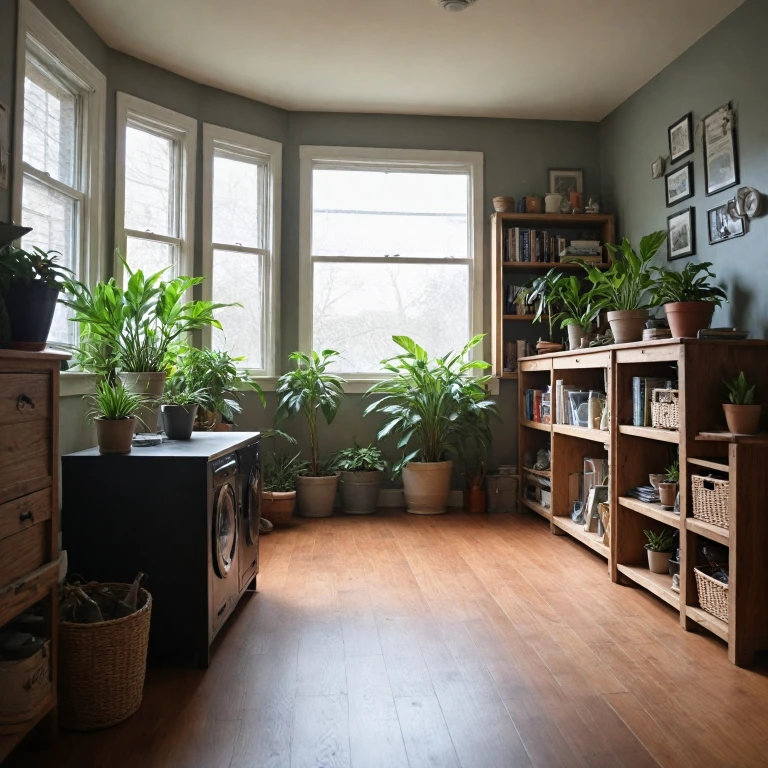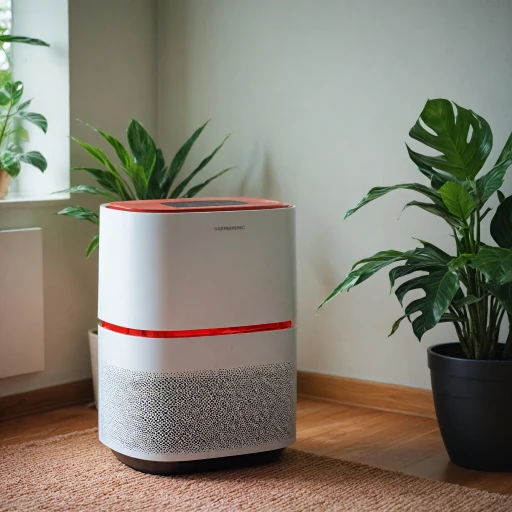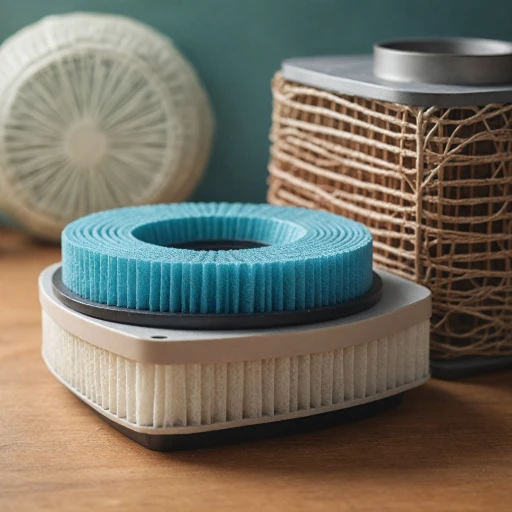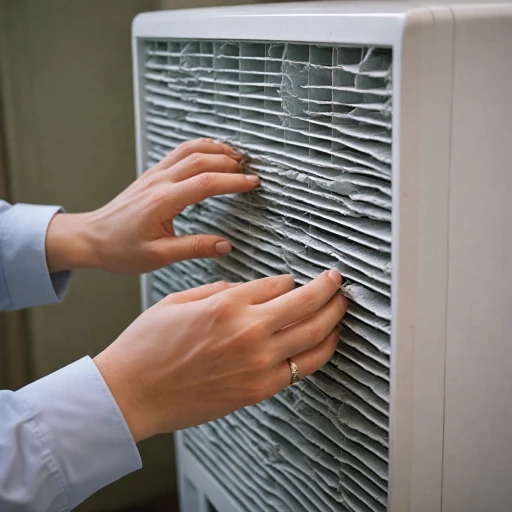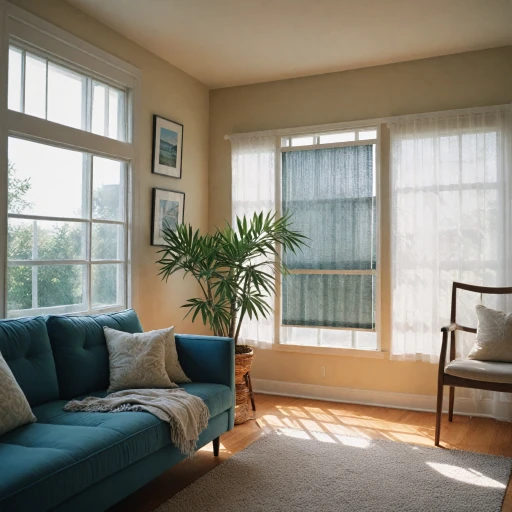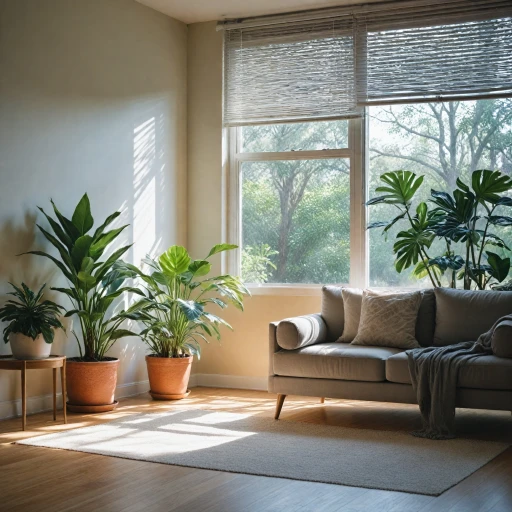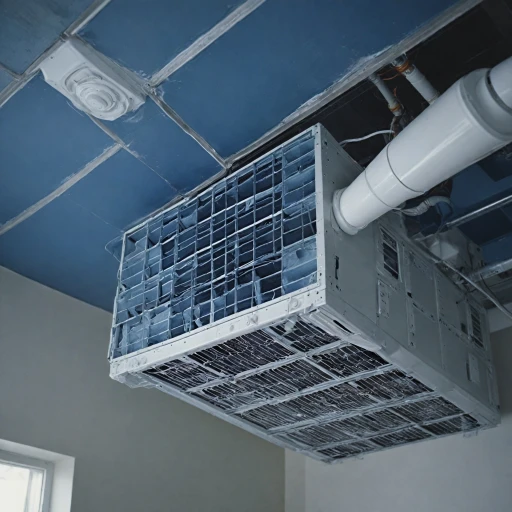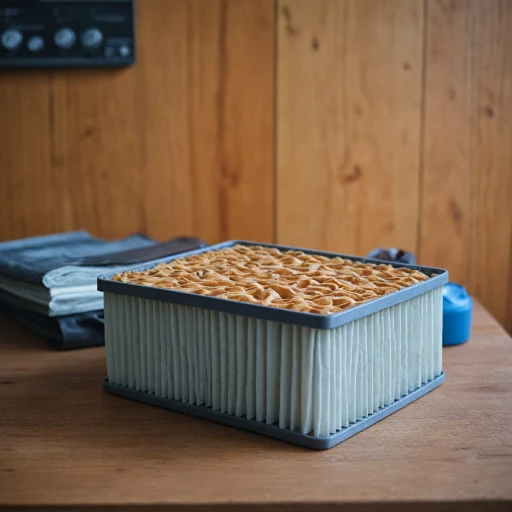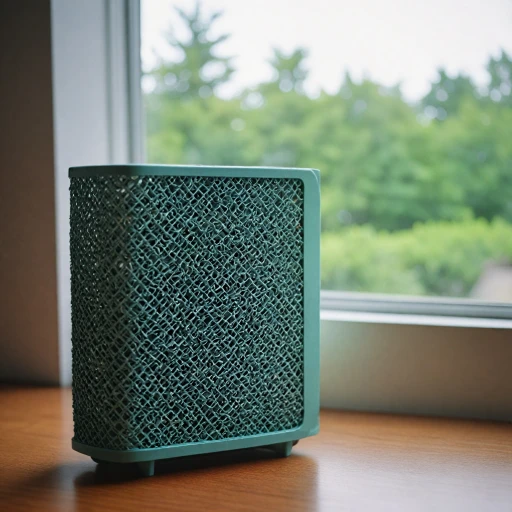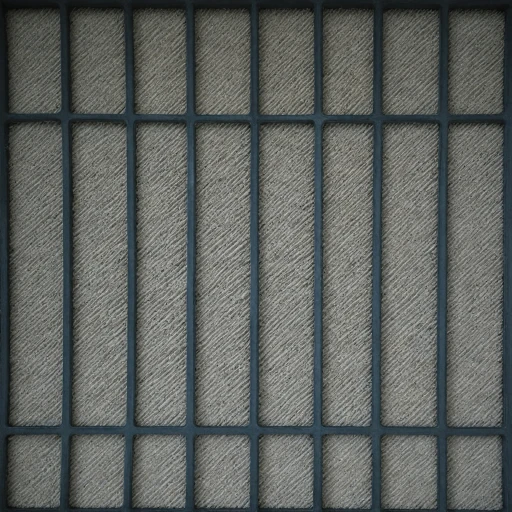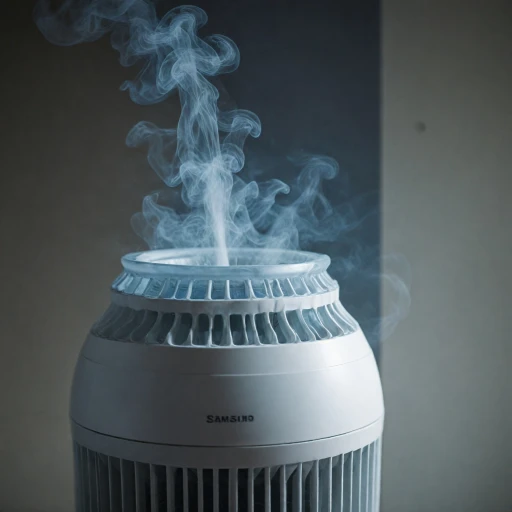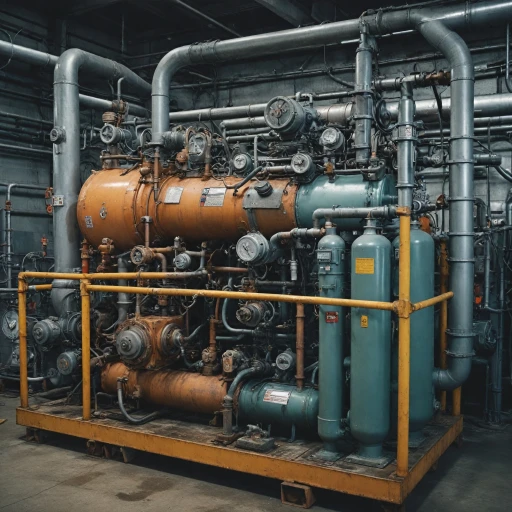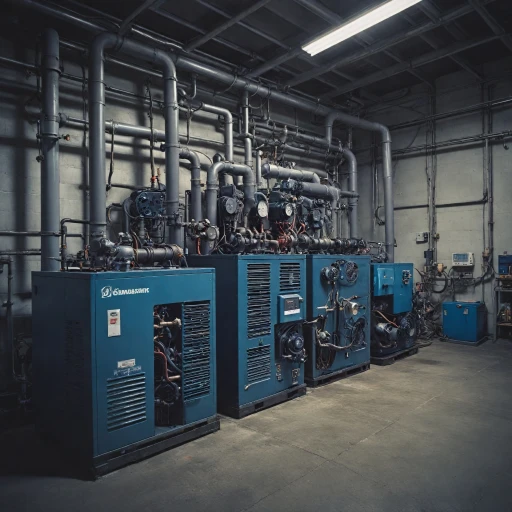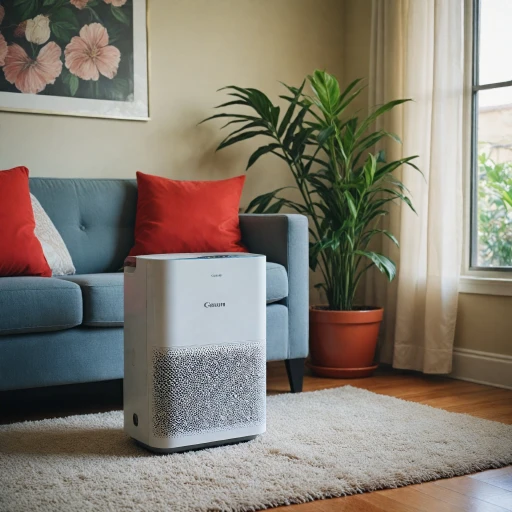
Understanding the Importance of Basement Air Quality
Why Basement Air Quality Matters
In the quest to improve indoor environments, enhancing air quality within the basement is crucial. Basements are often the most neglected space when it comes to air purity and can be home to a range of pollutants that pose health risks. Understanding the sources and impact of these pollutants is a starting step towards an effective purification strategy.The Importance of a Fresh Breathing Environment
Basements are particularly prone to poor ventilation, increasing the concentration of airborne particles and pollutants. These can include dust, mold spores, and even volatile organic compounds (VOCs). These pollutants not only compromise comfort but can also exacerbate respiratory issues and allergies. Beyond mere comfort, poor air quality in basements can affect the overall health of individuals spending time in these spaces. This justifies investing in a quality air purification system to ensure the space is a safe and habitable environment.Identifying Common Basement Pollutants
The air in basements can be sullied with various contaminants:- Dust and Allergens: Without frequent cleaning, dust accumulates easily in basements.
- Mold and Mildew: These thrive in the typically damp atmosphere of a basement, releasing spores into the air.
- Chemical Pollutants: Basements often store paints, solvents, and other chemicals that emit VOCs into the air.
Recognizing the Challenge of Dampness
Moisture control is another aspect that cannot be overlooked. Damp basements not only offer a breeding ground for mold, they can reduce the effectiveness of your air purifier. While effective purification systems can manage air quality, addressing moisture remains a critical consideration.Steps Towards Cleaner Air
Targeting the improvement of air quality in a basement requires both a comprehensive understanding and appropriate solutions. To explore more strategies and insights on maintaining a breathable environment, understanding the importance of a water and oil separator is a valuable resource that complements your air purification efforts.Key Features to Look for in a Basement Air Purification System
Essential Qualities to Seek in Your Basement Air Purification System
When considering an air purifier for your basement, several key features will ensure you achieve the best air quality possible. Unlike other areas of the home, basements come with specific challenges due to their unique environment. Here's what you need to focus on:- Filtration Technology: Prioritize models with a HEPA filter. True HEPA filters are capable of capturing up to 99.97% of particles as small as 0.3 microns, including mold spores and dust. This is crucial for preventing the spread of these common basement pollutants.
- Activated Carbon Filter: A carbon filter is effective at removing odors, smoke, and volatile organic compounds (VOCs). It's a must-have for maintaining clean air in enclosed spaces like basements.
- Auto Mode and Speed Settings: Opt for purifiers with an auto mode that adjusts its fan speed based on the air quality detected in the room. This feature is particularly helpful in saving energy and enhancing efficiency.
- Coverage Area: Ensure the purifier is suitable for a large room or your specific basement size. Products like the Levoit Core or Alen BreatheSmart range offer models that cater to various room dimensions.
- Quiet Operation: Since basements are often used for entertainment or work, a quiet mode becomes essential to avoid disturbances.
- Additional Filters: Some models include a pre filter that traps larger particles, extending the life of the main HEPA filter and maintaining peak performance.
Comparing Different Types of Air Purifiers for Basements
Evaluating Different Air Purifier Models Suitable for Basements
Choosing the best air purifier for your basement involves considering various types available on the market, especially noting the unique conditions often present in basements such as higher humidity and the potential for mold growth. Most models incorporate filtration technology that can effectively manage the air quality challenges these spaces often present.
HEPA Filters
True HEPA purifiers are one of the top choices for basements. They can capture up to 99.97% of airborne particles as small as 0.3 microns, including dust, smoke, and mold spores, thus offering substantial clean air output. One product that's frequently recommended is the Levoit Core series, known for its efficient performance in a large room. Keep in mind that the auto mode helps in adjusting the operation in response to different air quality levels.
Activated Carbon Filters
For basements with odor issues or exposure to volatile organic compounds, activated carbon filters are extremely useful as they excel in absorbing odors and chemical toxins. Look for products featuring an activated carbon layer in their design when smoke or musty smells are prominent.
Combination Units
Combination systems featuring both HEPA and carbon filters may provide the best results by targeting particles and odors simultaneously. These purifiers often come with multiple speeds or modes, such as sleep or eco modes, optimizing energy use and performance.
Considerations for Basement-Specific Air Quality
- Size and Coverage: Choose a model suitable for the basement’s size. Compact models can efficiently service smaller rooms, but larger basements may require multiple units or a purifier designed for expansive spaces.
- Humidity Control: In particularly damp basements, consider units that have some humidity control features or pair your device with a dehumidifier.
- Filter Replacement Ease: Regular maintenance of products like pre-filters and carbon filters is essential to sustained efficiency. It’s wise to check replacement filter availability on platforms like Amazon before purchasing.
Assessing and comparing features thoughtfully will help ensure you choose the best air purifier for your basement, enhancing the overall indoor air quality, and contributing to a healthier living space. For more guidance on the optimal operation of your air purifier, check trusted resources that delve deeper into maximizing purification effectiveness.
Installation Tips for Basement Air Purifiers
Steps for Proper Installation of Your Air Purifier in the Basement
Installing an air purifier in the basement effectively can significantly enhance the air quality by removing harmful particles such as dust, mold spores, and smoke. Here are some key considerations to keep in mind:- Location Matters: To achieve the best air purification performance, place your air purifier in a spot where it can cover the entire room. Positioning it centrally allows for optimal circulation of clean air. If you have a large basement, you may consider multiple units or one powerful system designed for larger areas.
- Avoid Obstructions: Keep the purifier's surroundings clear of obstructions. Furniture, walls, or appliances should not block the purifier, as this can hinder airflow. This ensures that the device works efficiently, drawing in unfiltered air and releasing purified air evenly.
- Power Accessibility: Ensure that your purifiers air is near a power outlet to connect efficiently. This minimizes the need for long extension cords, which can present tripping hazards and clutter in your space.
- Pre Filter Engagement: Many basement purifiers, like the popular Levoit Core, come with a pre filter. Engage this feature to capture larger particles such as dust and hair, preventing these from reaching the more delicate HEPA filter and carbon filter.
- Setting Filtration Mode: Utilize the auto mode if available. This enables the air purifier to detect air quality levels and adjust the speed of filtration autonomously. Such smart products can maintain optimal air quality without constant manual adjustments.
Maintenance and Care for Your Basement Air Purification System
Keeping Your Purifier Running Smoothly
Once you’ve chosen the perfect air purifier for the basement in your home, it’s crucial to ensure it remains in top condition. Proper maintenance not only extends the lifespan of the purifier but also assures optimal air quality. Here's what you need to know:- Regular Filter Changes: The core of any quality air purifier is its filters, such as HEPA and carbon filters. Over time, these can become clogged with dust, smoke, and mold spores. Manufacturers recommend changing these regularly, typically every 6-12 months, depending on usage. Be mindful of products like Levoit Core and Alen BreatheSmart models, which might have specific filter guidelines.
- Pre Filter Cleaning: Many purifiers come equipped with a pre filter that captures larger particles like pet hair and dust. Regularly clean or replace this component to maintain airflow and efficiency. Some pre filters are washable, while others might require complete replacement.
- Dust and Wipe Down the Exterior: Just like any other appliance, the exterior of the air purifier can accumulate dust. Wiping it down with a damp cloth once a week helps maintain a clean environment and prevent dirt from entering the filters.
- Check the Auto Mode and Speed Settings: Ensure that the purifier is set correctly. Auto mode optimizes performance according to the air quality detected – making it a hassle-free way to maintain a fresh atmosphere. However, during high-pollen seasons or construction, manually adjusting the speed can enhance filtration.
- Monitor Mold and Dust Levels: Since basements are prone to mold and dust buildups, regularly inspect your space. High humidity might cultivate mold spores, which can clog filters faster. Dehumidifiers can be a complementary solution.
Additional Strategies to Improve Basement Air Quality
Complementary Measures for Healthy Basement Air
Improving your basement's air quality goes beyond selecting the right air purifier. Here are some additional strategies to enhance the environment and maintain clean air:- Address Moisture Issues: Moisture encourages the growth of mold spores, which can be harmful when inhaled. Ensure that any leaks or sources of dampness in the basement are addressed promptly. A dehumidifier can also be a smart investment to keep humidity levels in check, complementing the function of your air purifiers in preventing mold.
- Control Dust and Pollen: Regular cleaning can significantly reduce dust and pollen accumulation. Vacuuming with a HEPA filter-equipped vacuum and wiping surfaces with a damp cloth can capture and remove allergens effectively. This reduces the load on your basement air purification system and ensures efficient performance.
- Upgrade Ventilation: Improving the basement’s ventilation can enhance air circulation, helping your purifier work more efficiently. The introduction of fresh air can dilute airborne pollutants, promoting better indoor air quality. Consider installing additional vents or fans if necessary.
- Avoid Chemical Storage: Storing chemicals such as paints, solvents, or cleaning products in the basement can contribute to poor air quality. Opt to store these items in a well-ventilated area away from living spaces to prevent any potential off-gassing from impacting air quality.
- Strategic Placement of Air Purifiers: While selecting the best air purifier, place it strategically to maximize coverage. For instance, keep your Levoit or Alen BreatheSmart model near potential pollutant sources or in the middle of a large room to optimize airflow and filtration efficiency.

